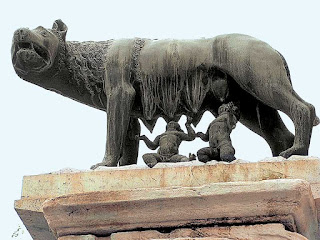By Anastassios D. Retzios
Many of you have heard of the theater of Herod Atticus near the Acropolis of Athens. But, you may not know who Herod Atticus actually was. Before I go on and give you a brief biographical note for Herod Atticus, let me preface it by stating that he was as close to the model of a “Europeanizing” Greek as one could get in antiquity. He was born at the end of the 1st century CE, a scion of a prominent Athenian family with substantial connections to the Roman administration. He was a very good friend of Emperor Hadrian, who actually appointed him governor of the Roman province of Asia (western Anatolia). Eventually, he got married into the imperial family. He moved to Rome for a period of time and acquired a lot of property in the Italian peninsula. He was appointed consul of the Roman Empire (one of the two holding office annually) by emperor Antoninus Pius, in 143. This was the highest office in the Empire one could aspire to (if one did not lead a rebellion). It was a major honor, achieved only by a few members of the Senatorial class (of which, Herod Atticus was a member).
But what about Greece at the time of Herod Atticus? During the principate phase of the Roman Empire (up to 245 CE), the province of Hellas (as well as the province of Macedonia) were ruled as “leagues of cities” which, of course, reported to a Roman proconsul (appointed by the Senate). Whatever had survived the original conquest and the looting that continued for the next half a century, as well as the destruction of the Mithidatean wars in the hands of the Sulla armies (as well as the end-of-the-Roman-Republic civil wars) now became a tourist attraction. Wealthy Roman patrons attended schools in Athens or Rhodes, participated in the Eleusian mysteries, competed in the Olympic games, bought slaves at Delos, or attended re-enactions of historic events in Sparta, the citizens of which were benefiting handsomely from Roman tourism. The cities, mostly depopulated, were ruled by a few wealthy individuals, usually competing for offices and honors from the Roman administration. Many of them took the names of their Roman patrons (as we know from cemetery inscriptions). And, almost universally, they regarded themselves as “Rhomaioi”, not “Helenes”.
This was Greece as a part of the first European super-state in its heyday: A tourist paradise, with most of its prominent citizens trying to make a career in Rome and other important centers of the Empire. And it is a good reflection of what modern Greece would become if the dreams of the “Europeanizing” Greeks for a European Federation (a European super-state) ever come true. Just see the what is happening in outlying areas of modern super-states and you can get the picture of what is going to happen to Greece if it ever gets incorporated within the borders of such a state.
This hardly stops the “Europeanizing” Greeks for dreaming of a European integration. They are mostly dreaming dreams of Herod Atticus. They are dreaming of making it big in the “European” stage and not being confined in poor, old Greece. Unfortunately, the few “Europeans” that may achieve this dream will leave behind a state, barely subsisting in the edge of the continent and hardly being paid attention to by the central authorities, very much as it happens today for periphery provinces in super-states. Eventually, as it happened in the Roman Empire, even the notion of Greece would disappear, only to be found in a few celebratory speeches and in history books.
Unfortunately, it is these “Europeanizing” Greeks and their dreams that have charted the apparently immutable “European course” of the country which is almost totally responsible for the destruction brought on by this crisis. It is difficult for them to understand that their “victories” are defeats for the country, for the wide population and its own distinct identity. In many ways, these “Europeanizing” Greeks are a reflection in time of the “Romanizing” Greeks, who, from the 2nd century BCE onwards managed to transform Greece and the Greek speakers in Eastern Mediterranean into the essence of Romanitas (by the 1st century CE) to the degree that even 18 centuries later, in the beginning of the 19thcentury CE, and even during the “Greek” revolution, 99.9% of the inhabitants identified as “Romans” (Rhomaioi). Although the changes of the intervening 18 centuries make this claim less false than it appears on the surface, the fact remains that the “Romanizing” Greeks of the 2nd century BCE are strongly responsible for the appearance of “Rhomaioi” in the Eastern Mediterranean.
Thus, a “unified Europe” or a “European integration”, despite the dreams of the “Europeanizing” Greeks would end up being even more destructive than the current crisis. Essentially, it would freeze the country into a minor peripheral role (mostly as a tourist escape) and it would slowly, bit-by-bit, dismantle its identity.
Best regards
Anastassios D. Retzios, PhD
San Ramon, California, USA

Δεν υπάρχουν σχόλια:
Δημοσίευση σχολίου